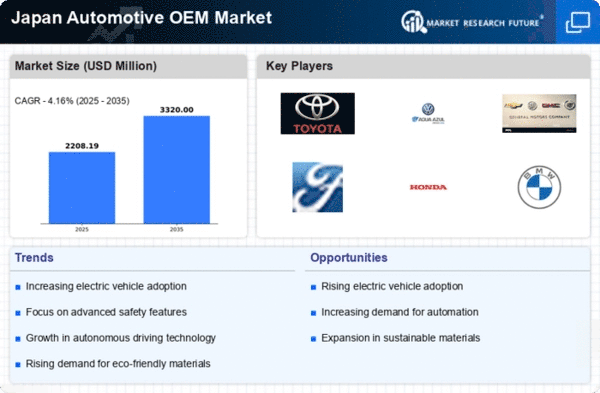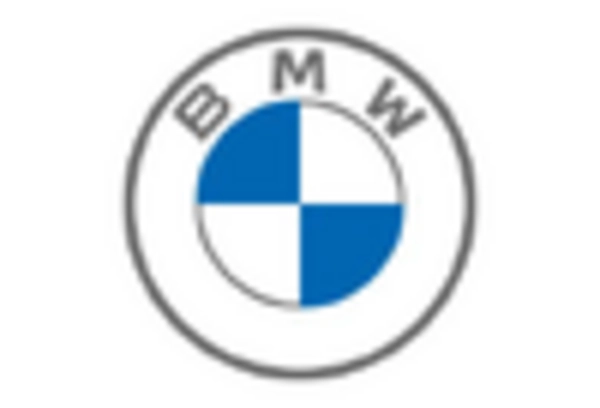Japan Automotive OEM Market Summary
As per Market Research Future analysis, the Japan Automotive OEM Market size was estimated at 2120.0 USD Million in 2024. The Japan automotive oem market is projected to grow from 2208.19 USD Million in 2025 to 3320.0 USD Million by 2035, exhibiting a compound annual growth rate (CAGR) of 4.1% during the forecast period 2025 - 2035
Key Market Trends & Highlights
The Japan Automotive OEM Market is experiencing a transformative shift towards electrification and advanced technologies.
- The rise of electric vehicles (EVs) is reshaping the landscape of the Japan automotive OEM market, with a notable increase in consumer adoption.
- Advancements in autonomous driving technologies are driving innovation and competition among major automotive manufacturers in Japan.
- Integration of connectivity features in vehicles is becoming a standard expectation among consumers, enhancing the overall driving experience.
- Government incentives for green technology and rising consumer demand for advanced safety features are key drivers propelling market growth.
Market Size & Forecast
| 2024 Market Size | 2120.0 (USD Million) |
| 2035 Market Size | 3320.0 (USD Million) |
| CAGR (2025 - 2035) | 4.16% |
Major Players
Toyota Motor Corporation (JP), Volkswagen AG (DE), General Motors Company (US), Ford Motor Company (US), Honda Motor Co Ltd (JP), BMW AG (DE), Daimler AG (DE), Hyundai Motor Company (KR), Nissan Motor Co Ltd (JP)
















